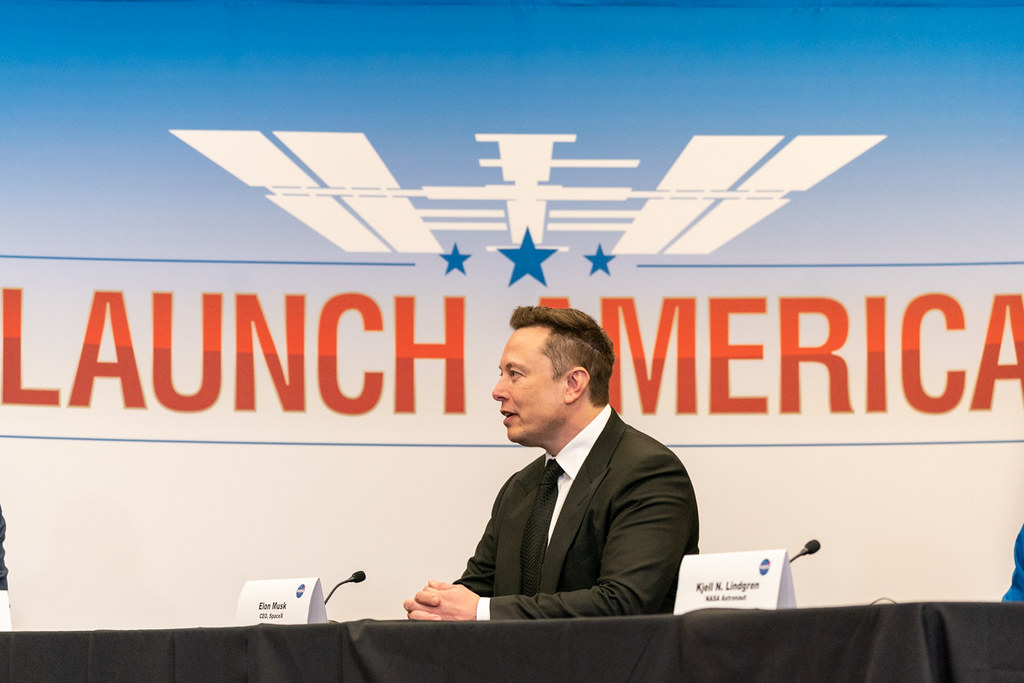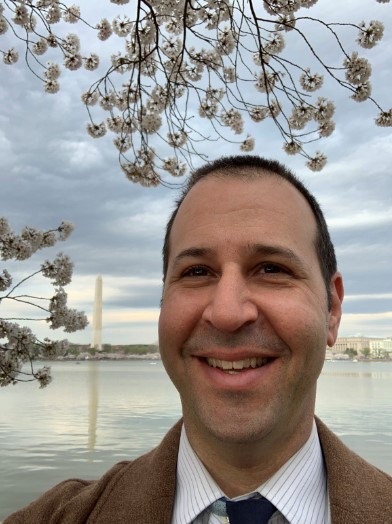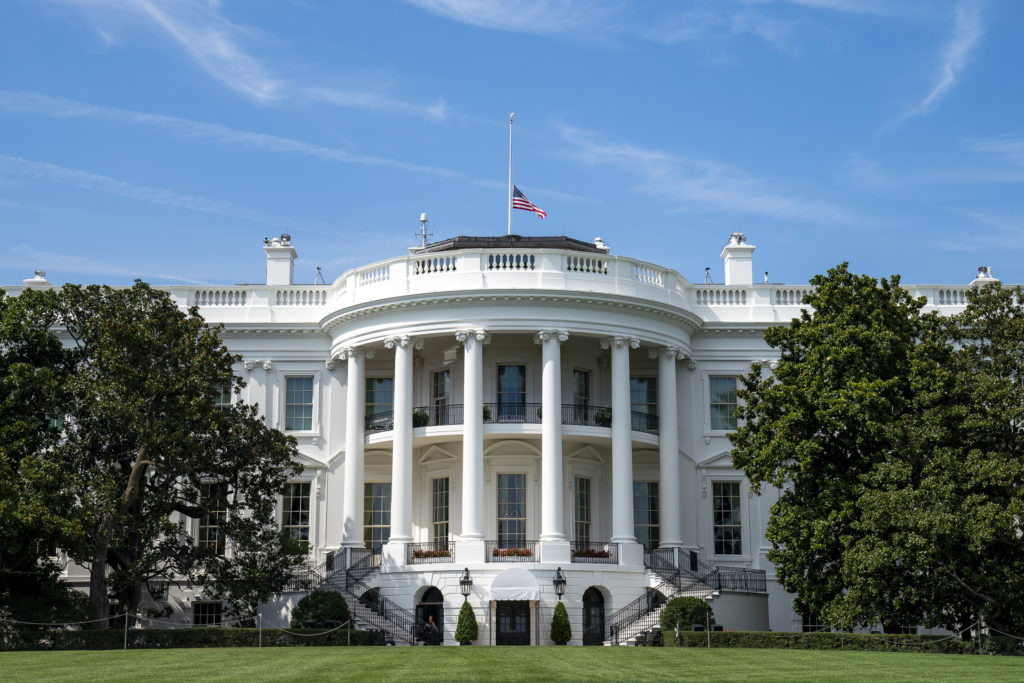Elon Musk Weaponizes the Government
The billionaire is turning the U.S. government’s own strategy against itself.

Published by The Lawfare Institute
in Cooperation With

Over the past few days, people working for the Department of Government Efficiency, or DOGE, Elon Musk’s shadowy quasi-governmental organization, have reportedly demanded access to the Department of the Treasury’s payment system. According to press reports, they have grabbed control of the Office of Personnel Management’s computer system, locking out regular employees. They have “taken over” the General Services Administration. These appear not to be isolated incidents but parts of a haphazard effort to circumvent ordinary democratic controls to repurpose the U.S. state.
It’s hard for politicians and journalists to grasp what Musk and his team are doing, still less to explain it to the public. These efforts involve technical systems that are incomprehensible and boring to outsiders, few of whom even know that the Office of Personnel Management exists, let alone what it does. But even if no one pays much attention to these systems, they are the sinews of government—key parts of the infrastructure that hold the federal state together and manage its relationship to the outside world.
We are highly familiar with such systems and how they can be used. Our academic research, and our recent book, “Underground Empire: How America Weaponized the World Economy,” explain how the U.S. quietly took control of similar technical systems that hold the world economy together and used them to exercise domination over allies and enemies alike. Now, Musk is seemingly doing to the U.S. government what the U.S. government once did to the rest of the world: refashioning the plumbing of the federal government into a political weapon against his adversaries.
Fifteen years ago, few people outside financial institutions paid much attention to SWIFT, a global system that banks use for messaging, or the “dollar clearing” system, both of which are central to global financial transactions. Everyone used the internet, but only systems administrators and engineers really cared about how it worked. Specialized trade publications might have cared about the global supply chains that allow complex manufacturing to happen, but no one else did. These systems provided the basic institutional infrastructure that made sure money, information, and goods got to where they were supposed to go in an orderly and efficient way.
Now, everybody who reads the news recognizes how important these systems are. The plumbing became political. During the Obama administration, the Snowden leaks revealed how the U.S. had turned the internet into an enormous system for global surveillance—waking people up to the role of dollar clearing and the SWIFT system. But these changes had begun several years before, even if many did not then understand their systemic consequences. Shortly after Sept. 11, 2001, officials in George W. Bush’s Treasury Department demanded access to SWIFT, providing them with a “Rosetta stone” to decipher the global financial system. A decade later, the Obama administration used SWIFT and dollar clearing to completely cut Iran out of the global financial system. The first Trump administration tried to use export controls to perform the same gambit in exerting control over semiconductor supply chains, providing the Biden administration with the tools it has used to limit China’s ability to train frontier artificial intelligence models.
Nearly exactly the same thing is happening now—except that this time the U.S. federal government is having done unto it what it used to do to others. Musk’s strategy has not been a coup so much as a takeover bid, aided and abetted by other parts of the Trump administration and the tacit acquiescence of the Republicans who control both houses of Congress.
The U.S. identified key choke points that allowed it to weaponize the world’s payment, information, and physical infrastructure to achieve its ends. Musk’s DOGE is weaponizing the U.S. government’s payment, information, and physical infrastructure in highly similar ways, carrying out an end run around the political structures that are supposed to restrain unilateral executive action. Just as when the U.S. weaponized the world economy over two decades ago, it is hard for those at the receiving end to understand exactly what is happening to them.
The crisis began at the Treasury Department. On the evening of Friday, Jan. 31, newly confirmed Treasury Secretary Scott Bessent reportedly provided DOGE representatives with access to the U.S. federal payment system, following a previous standoff that had led a senior nonpolitical Treasury official to resign. This complex system plays a crucial central role in controlling money flows throughout the federal system and to outside parties.
Like SWIFT and dollar clearing, the federal payment system used to be treated as a completely technical system that was insulated from political interference. No more. As Nathan Tankus explains, the Bureau of the Fiscal Service, the part of the Treasury Department that handles payments for the federal government, is supposed to be technocratic and focused purely on making sure the money goes where it is supposed to. Nonetheless, because it acts as an intermediary between the government and the rest of the government, it is a crucial choke point. It provides a single point of visibility into the operations of government, with detailed strategic information about what money flows where, and a single point of control.
In a letter to Sen. Ron Wyden (D-Ore.), the Treasury Department maintains that Musk’s people only have “read” access to the system—that is, they were unable to change the system and its underlying software. But Wired and Talking Points Memo report that Musk’s people can rewrite the software code. According to Tankus, one individual has “write access” to two crucial systems, the “Payment Automation Manager (PAM) and Secure Payment System,” allowing for the possible control of payments on a granular level. PAM alone reportedly facilitated $4.7 trillion of payments in 2024. While Musk has boasted that he is “rapidly shutting down” payments to a Lutheran charity, which he claims without evidence is corrupt, there is no confirmation yet of this claim.
DOGE operatives—one of them reportedly a recent high school graduate—have similarly taken control of key information systems at the Office of Personnel Management, locking out high-level career civil servants. This access provides Musk’s team with detailed and highly sensitive information on millions of government employees. It also has allowed them to send out blast emails to 2 million federal employees, making the legally dubious offer of a lengthy extended paid leave to workers willing to quit their jobs.
DOGE representatives have engaged in what an anonymous current employee described to Wired as a “takeover” of the General Services Administration (GSA)—the agency that manages much of the infrastructure of government, as well as its portfolio of buildings. They have reportedly looked to get access to internal GSA systems and laptops, potentially including highly sensitive information, as well as demanding information about contracts and financial flows at scale, preparatory to a planned wide-scale slashing of spending and fire sale of government property. Over the weekend, the Trump administration removed two U.S. Agency for International Development (USAID) officials after they tried to stop DOGE representatives who wanted to access a Sensitive Compartmented Information Facility (SCIF) and reportedly threatened to call federal marshals when they were refused entry. Musk has since described USAID as a “viper’s nest of radical-left Marxists who hate America” and called for it to be shut down. The USAID website has since been removed, and USAID employees were told to stay at home and were denied access to the main office building on Monday morning after Musk’s takeover.
Politicians have finally begun to respond to the more visibly threatening aspects of this crisis, such as the physical shutdown of the USAID building, but they find it hard to understand why the more arcane seeming takeover of technical systems is so important, let alone to explain it to the public. What they need to grasp—and quickly—is that Musk, and by extension Trump, appear to be trying to turn these technical systems into levers of control. If the two succeed, which is uncertain, they will have an unparallelled political advantage over the months and years to come. Even if they fail, their mistakes may have catastrophic consequences.
Just as control over SWIFT provided the U.S. with vital strategic information over global financial flows, so too could DOGE use access to the federal payments system to gain insight into the operations of government. In our research on global payments, we described how the U.S. had turned global finance into a “panopticon” that gave it exquisitely detailed information on who was sending money to whom, which it could then weaponize against adversaries. Gradually, the U.S. used the dollar system as a choke point to stymie payments and to convert foreign banks into agents of U.S. power.
The federal payments system has been a panopticon for decades, waiting for someone with political ambitions to break down the bureaucratic firewalls protecting it, and open it up. Apparently, that has now happened. If the system transforms into a tool to arbitrarily block payments to entities whom Musk or Trump doesn’t like, which Musk has claimed without confirmation is already happening, any contractor or third party that relies on money from the U.S. government will find itself dependent on their patronage and political whims. That will be technically hard to accomplish, but it would generate astounding opportunities for covert and overt corruption and for the imposition of political and ideological preferences on third parties. Blocking payments to federal agencies would likely be technically easier.
Control of information systems and the ability to broadcast can generate its own advantages. The academics Pepper Culpepper and Kathleen Thelen have described how platforms such as Uber are politically powerful because of their lopsided communications structures: The platform owners can broadcast their preferred messages to contractors and users, but contractors and users cannot similarly talk to each other. Similarly, coordination among civil servants will be far more difficult in a government where Musk’s people can broadcast all-employees messages, but government employees fear that their own communications are surveilled and they may be arbitrarily fired for saying the wrong thing. Musk has used similar dynamics in the past to chill opposition, using his social media platform as a megaphone to discredit his perceived enemies, while those who might disagree with him have no means to effectively challenge his claims.
However, throughout all of this, it is important to realize some important facts. Not very many people work for DOGE. Reports suggest that they are technically skilled, with engineering backgrounds, but have little experience of government or understanding how it works. Equally, the gnarly complexities of existing government information systems will mean they may be harder than Musk’s engineers anticipate to subvert wholesale for political purposes. The gross inefficiencies and “technical debt” documented by experts like Jennifer Pahlka may turn out to be an accidental immune system against those who might like to turn government technical systems into smoothly functioning systems of coercion.
At least in the short run, as the Trump administration continues its attacks on the administrative state, Musk and his small team will lack the human resources and administrative competence to use these powers in sophisticated ways. The more likely near-term risks are not efficient coercion but accidental calamity, as overconfident engineers in their early 20s mess about and find out. “Move fast and break things” is a terrible basis for widespread administrative reform. On the basis of Musk’s Twitter takeover, we can expect “what does this button do?” to rapidly shade into “we can figure out what we need by ripping everything out and seeing what fails.” It’s when they get to “who cares about bureaucracy anyway: we’ll have artificial general intelligence by 2027” that people should really start panicking.
Just as it took decades for the U.S. to really turn the technical systems of the global economy to its purposes, it will take time and tinkering around for DOGE to really begin to fulfill its ambitions. The bad news is that both federal employees and the entire U.S. population will be the unwilling guinea pigs in this vast experiment. The slightly less bad news is that what looks like a government takeover accomplished over a weekend is not yet a machinery of power, and it will take hard, uninterrupted work to make it so. Legislators, lawyers, and ordinary citizens who don’t want this hostile takeover to succeed should take every opportunity to throw sand into the works now through politics and protest, while there is still a chance to preserve institutions that—although imperfect—are necessary to the functioning of U.S. society and democracy.






